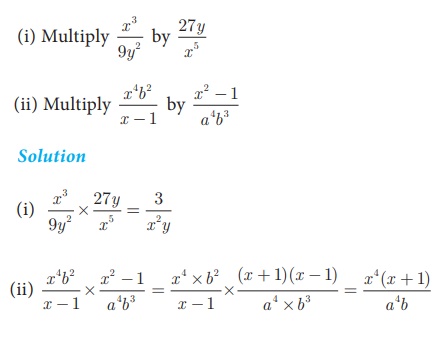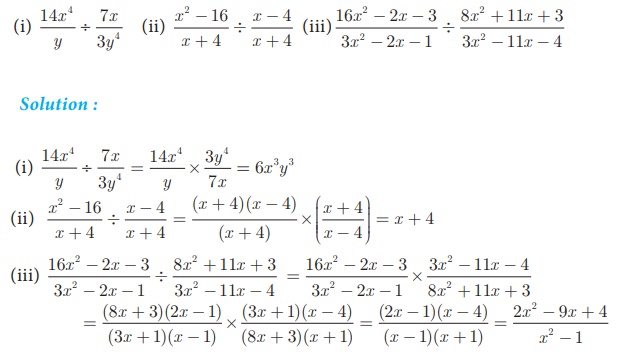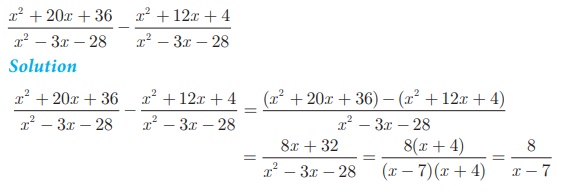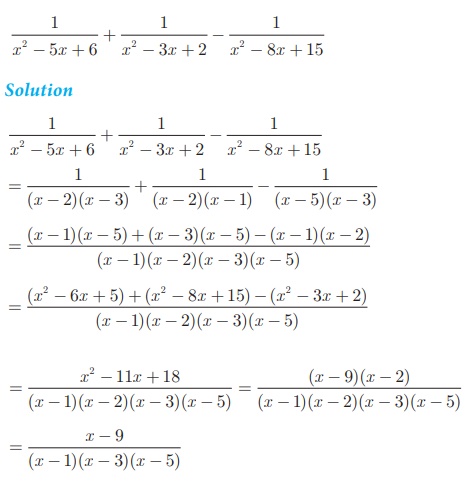Example, Solution | Algebra - Operations of Rational Expressions | 10th Mathematics : UNIT 3 : Algebra
Chapter: 10th Mathematics : UNIT 3 : Algebra
Operations of Rational Expressions
Operations
of Rational Expressions
We have studied the
concepts of addition, subtraction, multiplication and division of rational
numbers in previous classes. Now let us generalize the above for rational
expressions.
Multiplication of Rational Expressions
If  are two
rational expressions where q (x) ≠ 0, s (x) ≠ 0 ,
are two
rational expressions where q (x) ≠ 0, s (x) ≠ 0 ,
their product is 
In other words, the
product of two rational expression is the product of their numerators divided
by the product of their denominators and the resulting expression is then
reduced to its lowest form.
Division of Rational Expressions
If  are two
rational expressions, where q (x), s (x) ≠ 0 then,
are two
rational expressions, where q (x), s (x) ≠ 0 then,

Thus division of one rational expression by other is equivalent to the product of first and reciprocal of the second expression. If the resulting expression is not in its lowest form then reduce to its lowest form.
Example 3.15

Example 3.16 Find

Addition and Subtraction of Rational Expressions
Addition and Subtraction of Rational Expressions with Like Denominators
(i) Add or Subtract the
numerators
(ii) Write the sum or
difference of the numerators found in step (i) over the common denominator.
(iii) Reduce the
resulting rational expression into its lowest form.
Example 3.17 Find

Addition and Subtraction of Rational Expressions with unlike Denominators
(i) Determine the Least
Common Multiple of the denominator.
(ii) Rewrite each
fraction as an equivalent fraction with the LCM obtained in step (i). This is
done by multiplying both the numerators and denominator of each expression by
any factors needed to obtain the LCM.
(iii) Follow the same
steps given for doing addition or subtraction of the rational expression with
like denominators.
Example 3.18
Simplify

Related Topics